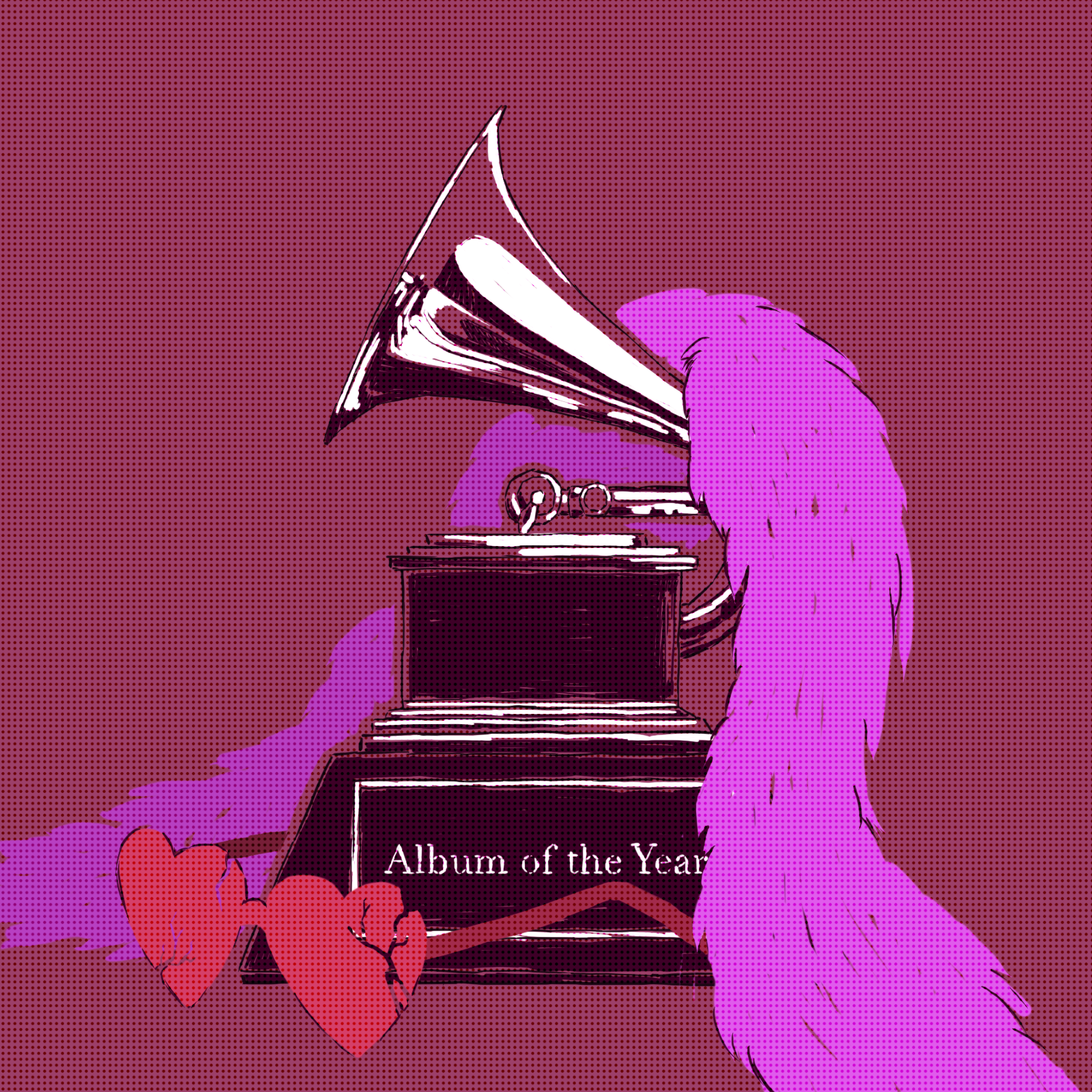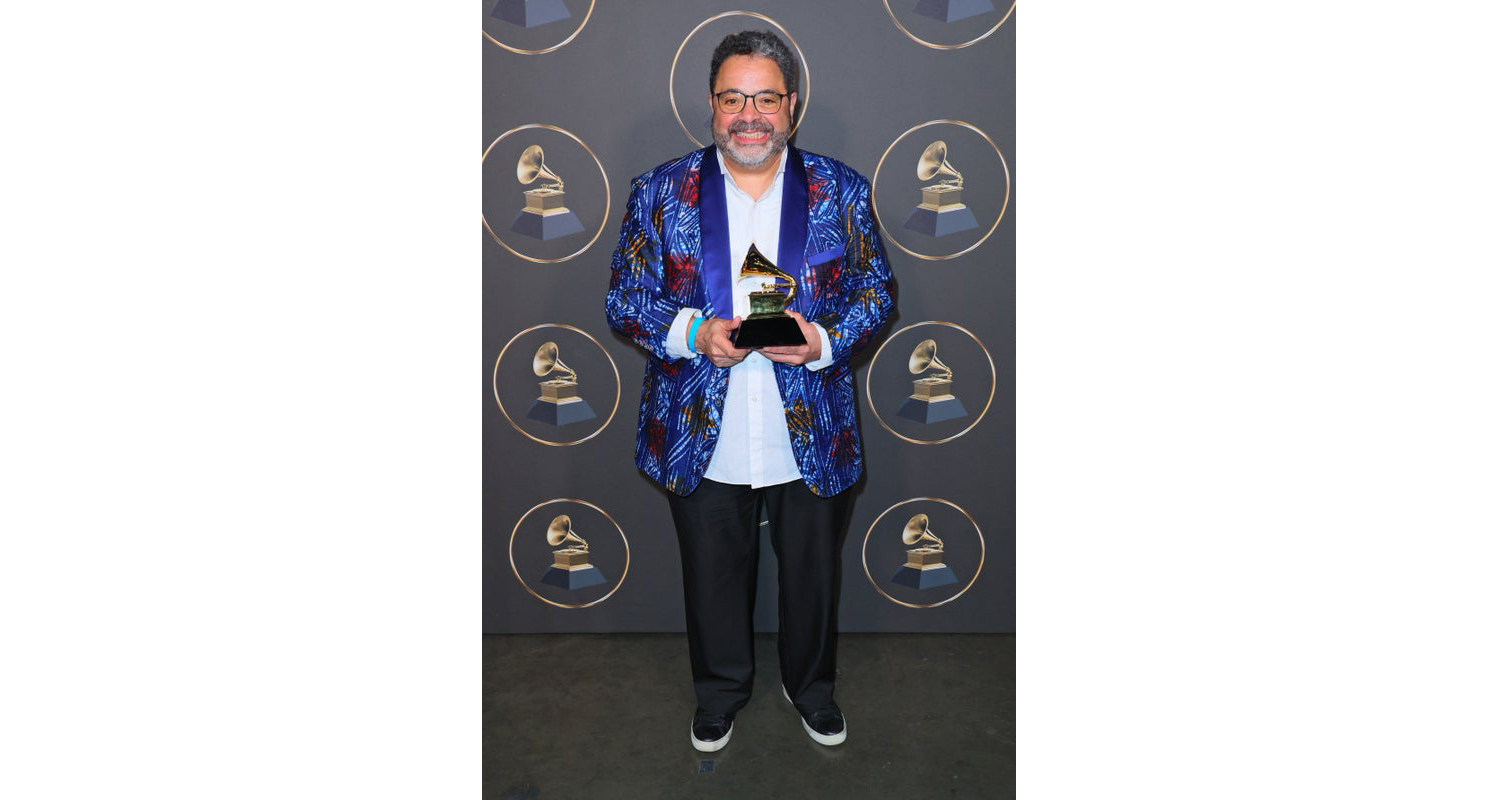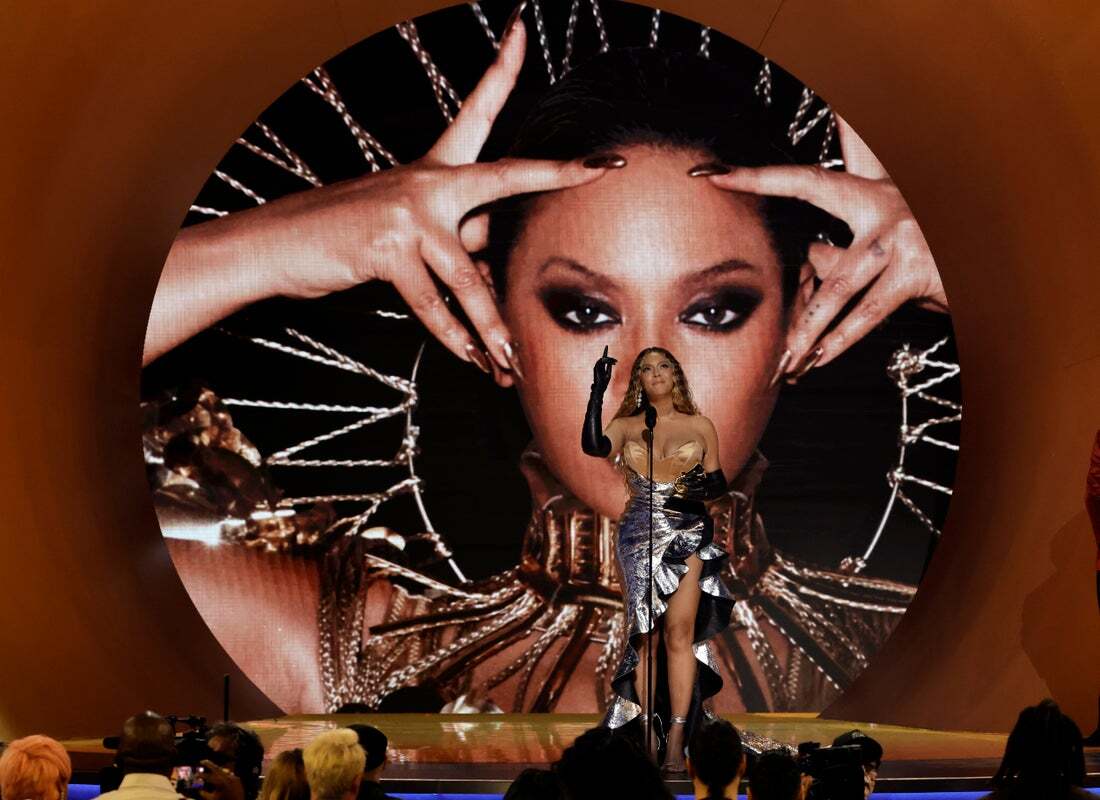Grammys 2024 Q&A: Artists discuss future of representative music industry
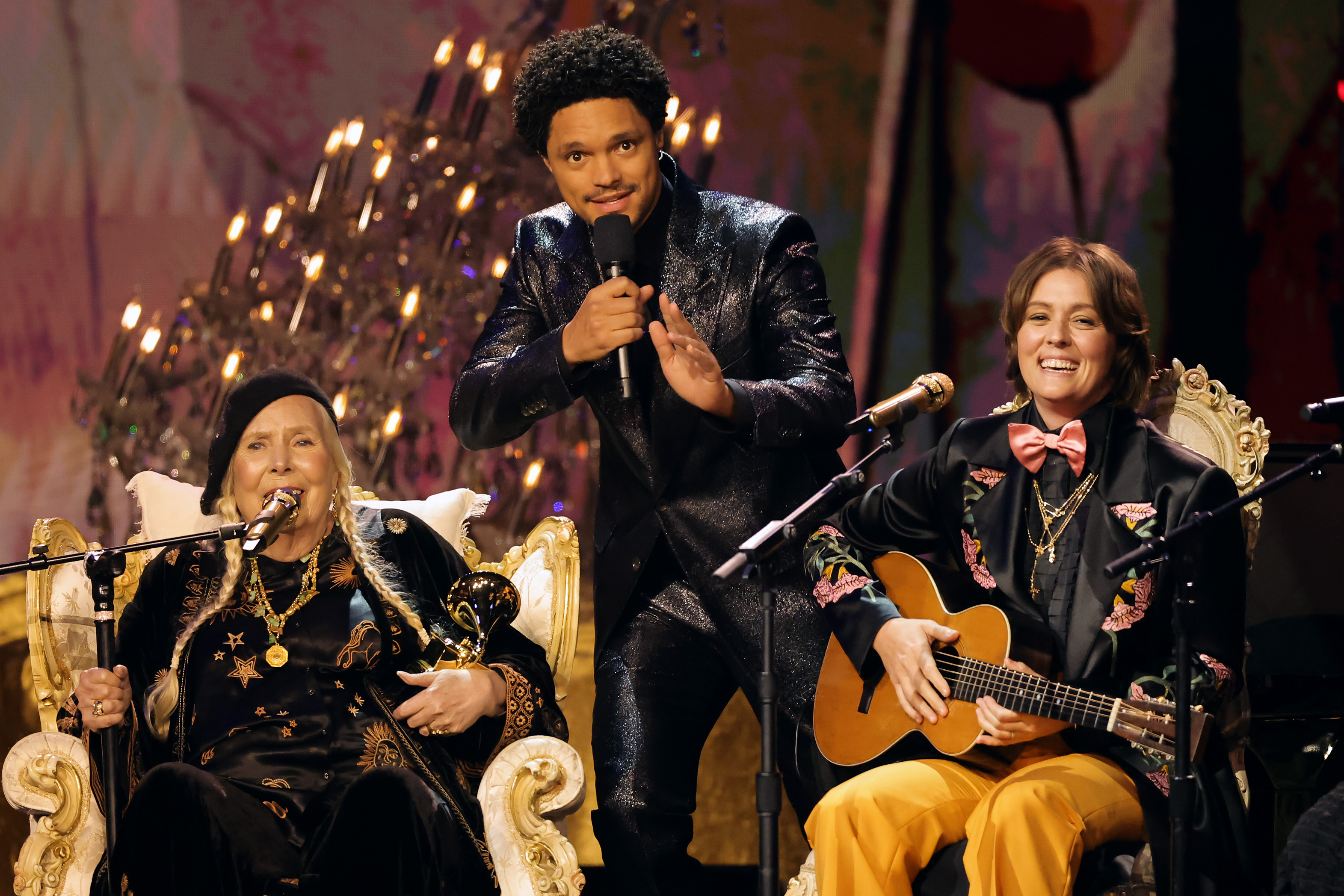
Host Trevor Noah introduces a group performance of “Both Sides Now” while standing next to Joni Mitchell and Brandi Carlile at the 66th Annual Grammy Awards. The performance, which aired live last night, also included eight-time nominee Allison Russell. (Courtesy of Kevin Winter/Getty Images for The Recording Academy)
By Leydi Cris Cobo Cordon
Feb. 5, 2024 1:07 p.m.
This post was updated Feb. 6 at 8:22 p.m.
Embodying their distinct experiences, these artists are the melodies of the globe.
Taking place last night at the Crypto.com Arena, the 66th Annual Grammy Awards saw a range of historic moments, including the award show’s first performance in the Afrobeats genre and the introduction of the Best African Music Performance category – whose nominees comprise a total of two countries. Among the first-time winners were children’s media duo 123 Andrés and singer-songwriter and advocate Allison Russell.
During the virtual red carpet, the Daily Bruin’s Leydi Cris Cobo Cordon spoke with various artists about shaping the future of a representative music industry.
This interview has been edited for length and clarity.

Daily Bruin: As creators of English and Spanish children’s music, what does it mean to you to be honored as a nominee in the Best Children’s Music Album category?
Christina Sanabria (123 Andrés): It means so incredibly much. I grew up in this country with parents who are immigrants, who spoke Spanish at home. I spoke English at school. So I know so many children and young people have that experience, or maybe they’re just curious. They want to learn another language because they know it will open doors for them in the future. It’s so special for the Academy to recognize that and honor it. We feel so proud to be here.
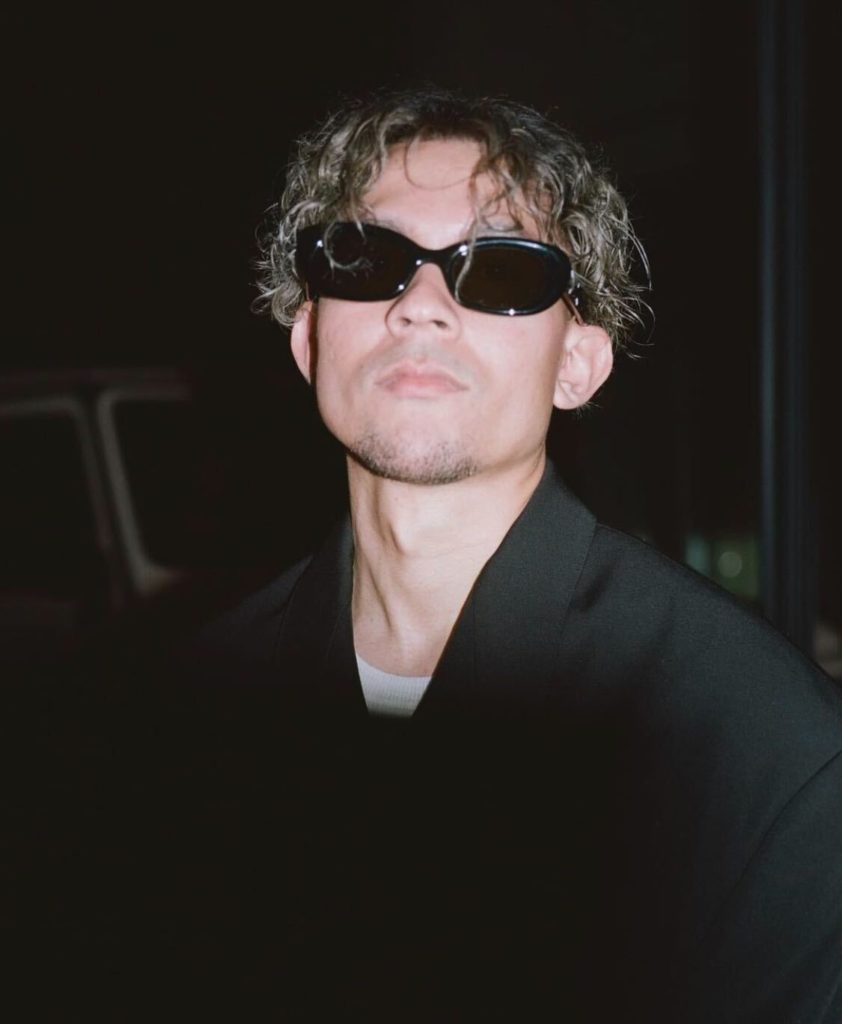
DB: As a music producer, you’ve worked on many tracks with Latin American artists, from Daddy Yankee to Bad Bunny. Some musicians have expressed feeling pressured to incorporate English into their projects to appeal to a broader audience. What do you think the role of English should be in Latin music?
Tainy: It should always be something that’s not forced. I think music is something that you just go by feeling and when it feels natural, those are the things that make it special. That’s what I look for when I’m trying to make a track that has Spanish or Spanish-speaking artists on it, but feels like something in English could work or translate and be something that every type of public can understand. As long as it feels like something special when you listen to it, and it’s not something that we are just forcing because we want to make a Spanglish song, I’m all in for it.
[Related: Grammys 2024: Daily Bruin predicts big winners of the 66th annual Grammy Awards]
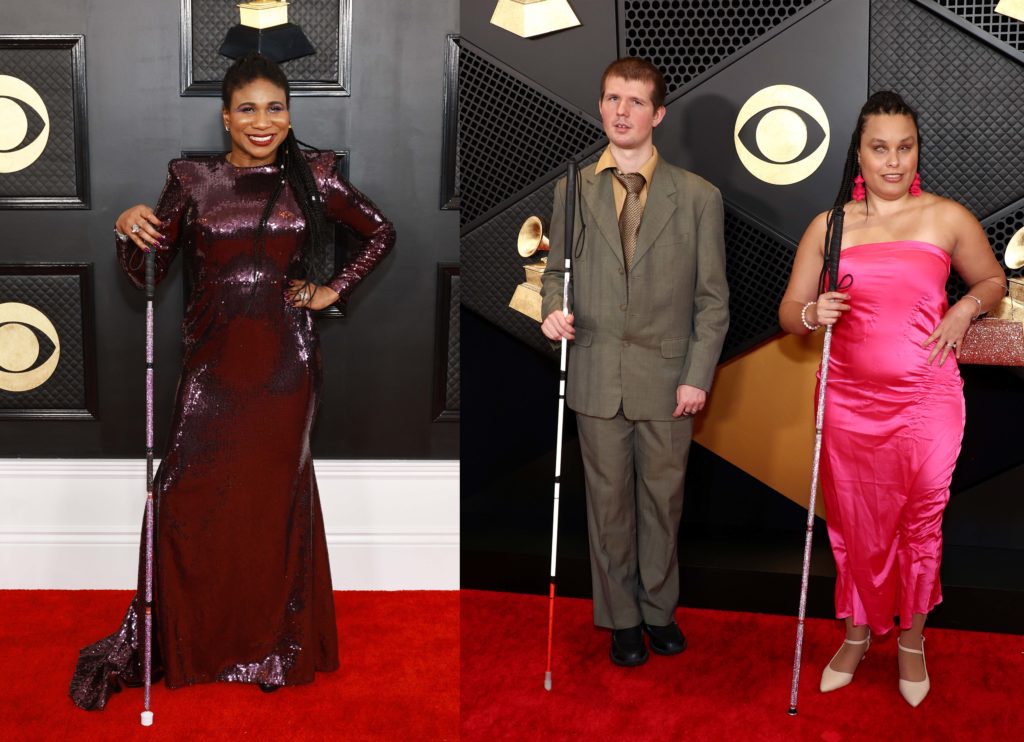
DB: As part of Recording Artists And Music Professionals With Disabilities, you both have continued to advocate for inclusivity at the Grammy Awards. The Herb Alpert School of Music has recently launched a music industry degree for the next generation of professionals. What steps can be taken at the university level to further contribute to accessibility and equity?
Precious Perez: The first step in any inclusive strategy or process is to really figure out what the people with disabilities in your communities and in your universities need. Every person with a disability is a unique person, as we all are, and everybody has different needs. The only way to really find out what people need is to talk to the community, really get to know them and from there, they can help you design accommodations and low-hanging fruit strategies to be able to make sure that you are being as inclusive as possible.
Lachi: To take that just a step further, one of the big things that are lacking is numbers and studies. It’s as simple as taking a demographic survey asking if folks identify as having a disability or neurodivergence. You’re not really asking people their medical history, it’s about self-identification. I want to see that question added into more demographic surveys, so we can really start having the numbers to prove that this is a population that deserves to be served.
[Related: Grammys shine in rose gold as women take center stage at 66th annual award show]
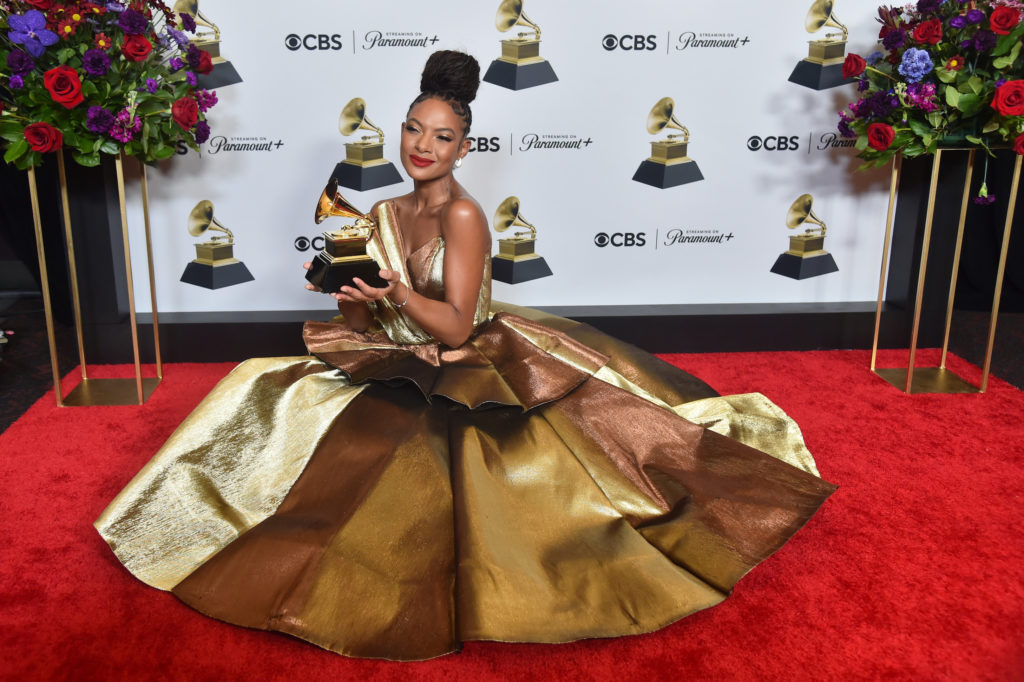
DB: In a previous response, you mentioned that art is not made for the sake of awards. As an activist and musician, what do you believe the role of art is in influencing policy and societal beliefs?
Allison Russell: I think that art is our great humanizer. I believe that the humanities and the arts are what help us achieve our deepest and highest humanity, our understanding of our complete interdependence and interconnectedness, the fact that we are one equal human family on this one precious finite planet – the only life-giving bearing planet that we know of in the entire universe – and that we are all of us precious and irreplaceable. Art helps us to remember that and recognize that. It helps us to celebrate our glorious differences instead of fearing them. It helps us to build connection.
Music is so magical. All art does this, but music has a special alchemy and magic. When we are together, playing music, hearing music, it literally changes our biochemistry. It lowers our cortisol levels, our stress levels, it boosts our serotonin, it boosts our oxytocin. It makes us more loving. It makes us literally more connected. So I think that music affects everything that we do positively, and it helps us to collectively, creatively problem solve in a way that helps us avoid violence, abuse, misery, cycles of violence.



